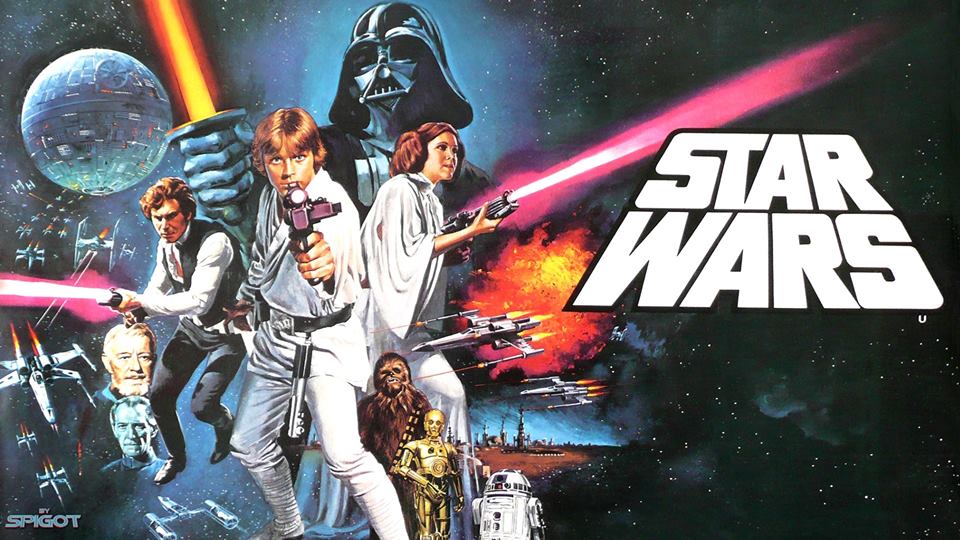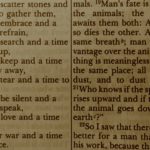From The New Yorker, June 17, 2002
(an excerpt)
In the summer of 1977, I saw Star Wars twenty-one times, mostly by myself. I was thirteen—that kid alone in the ticket line, slipping past ushers who’d begun to recognize me, impatient to get to my favorite seat. All twenty-one viewings took place at the Loews Astor Plaza at Forty-fourth Street, just off Times Square. The Astor Plaza was a low, deep-stretched hall with a massive screen and state-of-the-art sound, newly enough renovated to be free of the soda-rotted carpet that was a feature of New York theaters in those days. I associated the theatre with the Death Star; getting into it always felt like an accomplishment.
My count was amassed by seeing the movie twice in a day. Once, I sat through it three times. The practice of seeing a film twice had originated earlier, when somebody—my mother?—had floated the idea to me and my brother that it wasn’t important to be on time for a movie, or even to check the screening times before going. Instead, we’d pop into the theatre in Brooklyn Heights at any point in a film, watch to the end, sit through the break, and then watch the beginning—which naturally led to watching a movie we liked twice, even if we hadn’t been late. This was encouraged by my parents, partly according to a general Steal This Book imperative, in their circle, for taking freebies, and partly because it was a convenient way to get us out of the house for long stretches.
I was using the movie as a place to hide. My parents had separated a couple of years earlier. Afterward, my mother began having seizures, was diagnosed as having a brain tumor, and had the first of two unsuccessful surgeries. The summer of Star Wars, she was five or six months from the second surgery, and a year from dying. I spent a certain amount of time that summer trying to distract my grandmother from the coming loss of her only child by pushing my new enthusiasms on her, as if she could replace family with pop culture, as I was doing. She and I had an ongoing argument about rock and roll, one that (it now strikes me) was ultimately a kind of argument about whether our family was a site of tragedy. I sensed that I was on the losing end of it, but in any case I worked to find a hit record that she couldn’t quibble with. I thought I’d found it in the Wings’ “Mull of Kintyre,” which is really a strummy Scottish folk song, and one afternoon I auditioned it for her at top volume. She grimaced—her displeasure not at the music but at the trump card I’d played. Then, on the fade, Paul McCartney gave a kind of whoop-whoop holler, and my grandmother seized on it with relish: “You hear that? He had to go and scream!”
My mother herself was better able to oblige me. I don’t know how much of an effort it was at that point for her to travel by subway to a movie theatre in Manhattan, but she was certainly doing it for my sake. It may have been one of our last ventures out together, before it became impossible for her. I remember fussing over rituals inside the theatre, showing her my favorite seat, and straining not to watch her watch the movie throughout, not to hang on her every reaction. She found the movie just O.K.—it wasn’t her kind of thing—but she could understand why I liked it so much. Those were pretty close to her exact words, delivered in her characteristic Queens hardboiled tone: “I see why you like it, kiddo.”
I hate arriving late for movies now, and would never watch one in the broken fashion I used to, although I suspect that I learned something about the construction of narratives from the habit. But I still go to the movies alone, all the time. It’s as near as I come in my life to any reverent or worshipful or meditational practice. As a solitary moviegoer, I can take a break to go to the bathroom and return to another part of the theatre and watch from a different seat—a thrill that has not diminished.
After my mother and I saw Star Wars that day, I decided to stay and watch it a second time, and she left me there and took the subway home alone. I see now that this was a kind of rehearsal. I was saying, in effect, Come and see my future, Mom. Enact with me your parting from it. Here’s the world of cinema and stories I’m using to survive your going—now go. How generous of her to play in this masquerade, if she knew.
Read more: A Galaxy Not So Far Away





